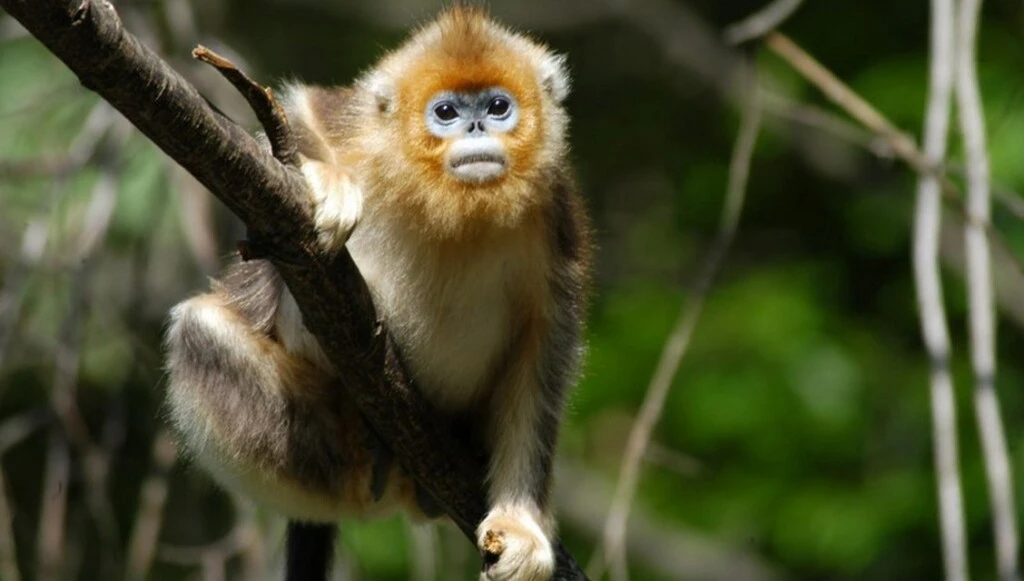From the BBC comes the story of a dedicated scientist who has spent decades in China’s mountain forests to protect one of the nation’s most extraordinary animals.
The golden snub-nosed monkey, revered alongside the giant panda as a “national treasure,” suffered from decades of logging and hunting after the Cultural Revolution. By the time Professor Yang Jingyuan arrived in the UNESCO-listed Shennongjia mountains of Hubei Province in 1991, their population had plummeted to around 500 individuals across six family groups, and forest coverage had dropped to just 63%.
Before he could protect them, Yang first had to understand them. Alongside his colleagues, he ventured into the newly established Shennongjia Forest Reserve to study the monkeys. Initially, the animals were so wary that researchers could only observe from half a mile away. Over time, repeated encounters allowed the team to get closer—first a quarter mile, then 200 yards, then 20—until the monkeys accepted their presence.
BBC correspondent Stephen McDonell experienced this intimacy firsthand, as curious juveniles and baby monkeys climbed over him in special 100-square-kilometer monkey zones closed to the general public.
“Even after logging was banned, people still felled trees or hunted to survive,” Yang explained. “It was only through long-term awareness efforts that local communities began to change.” In the 1990s, government programs offered subsistence farmers incentives to relocate, allowing the forests to regenerate. Today, many benefit from the tourism boom in the mountains.
Shennongjia boasts unrivaled biodiversity: more than 3,400 higher-order plant species, over 600 invertebrates, and an astonishing array of deciduous woody plants. The golden snub-nosed monkey is a “fuzzy golden cherry” atop this ecological treasure.
Yang’s conservation efforts have paid off. The population of monkeys rose from 500 to 1,200 by 2013, and by McDonell’s visit, it had reached 1,600. Forest cover along hills and valleys now extends to around 96% of the reserve. Yang, fluent in their vocalizations, can interact with the monkeys as if part of their world. His research has revealed remarkable behaviors, such as the monkeys’ instinct to leave their families for secluded areas when it is time to die.
Yang’s institute predicts the population will reach 2,000 within the next decade—a testament to the transformative power of conservation when guided by knowledge, patience, and dedication.
